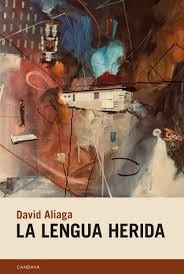
Original language: Español
Year of publication: 2024
Valuation: Advisable
Let them criticize my book for whatever it is but not for lack of ambition. Alberto Torres Blandina must have thought something like that when he finished Tierra. And if you didn’t think about it, you should. Because writing a book of almost 700 pages (plus maps and index) that summarizes the history of the world in the last 50 years is no small feat.
Not only that. As Allende said, History is ours and it is made by the people. Or the thousands or millions of individuals that make them up, wow. And so, playing a little with the Borgesian idea of The Library of Babel The author takes different individual stories (but always inserted in the collective) of anonymous people from all continents, varnishes them with the literary and puts together a human fresco that starts in Berlin in 1961 and ends in Seoul in 2019, place in which the author conceived Tierra. Almost fifty years and a multitude of stories in which anonymous beings and “big names” are intertwined, the historical and the intimate, the public and the personal.
And any story is (or can be) interesting. It all depends on the look and the connections or continuities that we can find in it. It doesn’t matter so much whether they are initiation stories – children’s, horror, humorous, melancholic, wonderful or sad, real, texts that talk about memory, estrangement, truncated hopes, crossed lives or fulfilled desires. What really counts is its universality, its ability to transcend, to talk about the world even if you are only talking about yourself and your village.
The great variety of texts makes Tierra It can be read as a novel, yes, but also as a succession of stories or micro-stories based on real events, as a chronicle, essay or report about a changing world that, at times, seems to move in circles or as an anthropological treatise on cultural clashes, different forms about the relationship between the world and the West (or vice versa) or about the much vaunted end of history (fuck Fukuyama!). But always keeping in mind that there is an author who collects, compiles and gives literary form and also, why not?, politics to the hundreds of testimonies.
Those “lust for completeness” and ambition that I have already spoken of make a certain inequality inevitable in the interest that some of the stories may have for the reader. It is also difficult not to fall into certain repetitions that lengthen the book perhaps a little longer than necessary. In any case, I think they are issues linked to the structure of the text and the author’s own ambition. That being so, they are forgiven.
Source: https://unlibroaldia.blogspot.com/2024/12/alberto-torres-blandina-tierra.html


